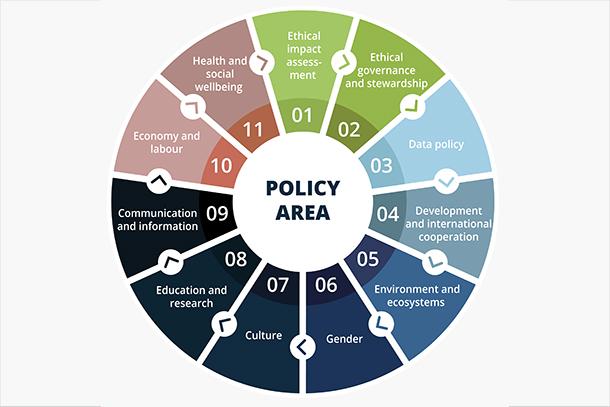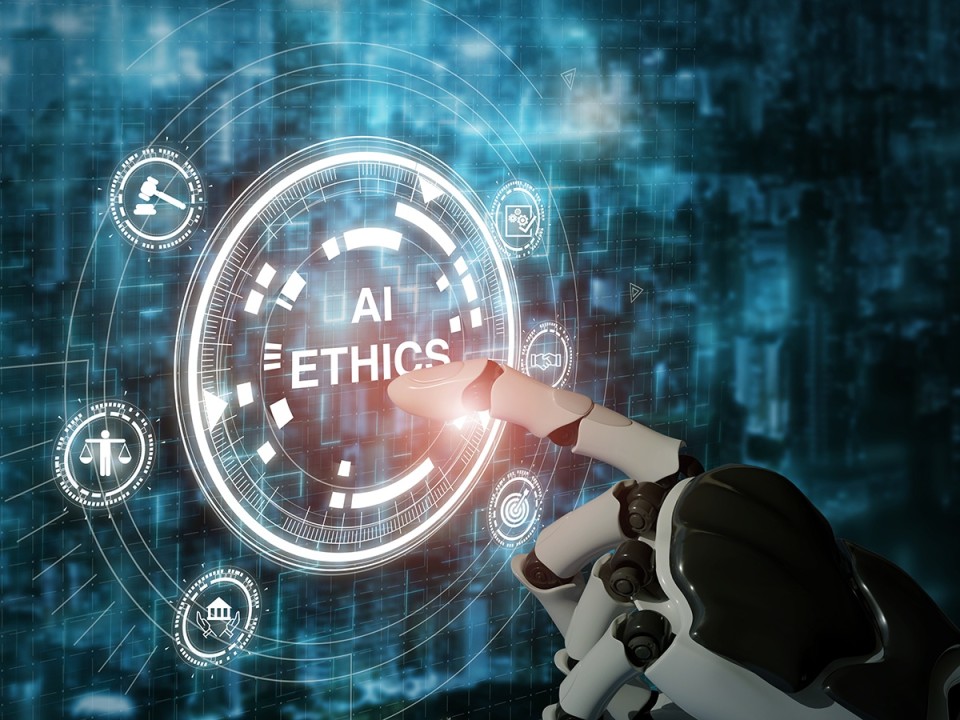The Importance of Ethics in Artificial Intelligence
Ethics in Artificial Intelligence (AI) ensure technology benefits society without causing harm. Ethical AI builds trust and promotes fairness.
Artificial Intelligence is transforming various industries, from healthcare to finance. As AI systems become more integrated into daily life, ethical considerations grow in importance. Ensuring AI operates within ethical boundaries prevents misuse and unintended consequences. Ethical AI promotes transparency, accountability, and fairness, which are crucial for public trust.
Developers and policymakers must collaborate to create guidelines that prioritize human rights and societal well-being. Addressing ethical concerns early helps avoid potential pitfalls and builds a foundation for sustainable AI innovation. By focusing on ethics, we can harness AI’s potential while safeguarding fundamental values.
Introduction To Ai Ethics
Artificial Intelligence (AI) is everywhere. It powers our phones, homes, and even cars. But as AI grows, so does the need for ethics. AI ethics helps guide the development and use of AI. It ensures that AI is fair, transparent, and safe for everyone.
Defining Ai Ethics
AI ethics is a set of guidelines. These rules help make sure AI is used in a good way. They cover many areas, like privacy, fairness, and accountability.
- Privacy: Ensures user data is kept safe.
- Fairness: Makes sure AI treats everyone equally.
- Accountability: Holds developers responsible for AI actions.
These principles help build trust in AI. They make sure AI benefits everyone.
Historical Context
AI ethics is not new. It has roots in early computer science. In the 1950s, scientists began to think about the impact of AI. They wanted to make sure AI was used responsibly.
Early discussions focused on simple rules. They addressed how AI should behave. Over time, these ideas grew. Now, they form the basis of modern AI ethics.
Today, many organizations follow AI ethics. They create guidelines and rules. This helps make AI safer for everyone.
Understanding AI ethics is important. It helps guide the use of AI. It ensures AI is fair, transparent, and safe. By following these guidelines, we can build a better future with AI.
Ethical Principles In Ai
Artificial Intelligence (AI) is changing our world. It helps in many ways. But, it also brings challenges. Ethical principles in AI guide us. They ensure AI works for everyone. Let’s explore these principles.
Transparency And Accountability
AI must be transparent. We should know how AI makes decisions. This helps us trust AI systems. Accountability means someone is responsible. If AI causes harm, we need answers.
Here is a simple table showing the importance:
| Principle | Importance |
|---|---|
| Transparency | Builds Trust |
| Accountability | Ensures Responsibility |
Fairness And Justice
AI should be fair. It must treat everyone equally. No one should face bias. Justice ensures AI serves all people.
Here are key points to remember:
- AI must not discriminate.
- Everyone deserves equal treatment.
- Justice ensures fairness for all.
Following these principles makes AI better for everyone. It helps build a world where AI serves us all equally and fairly.
Ai Bias And Discrimination
Artificial Intelligence (AI) is transforming our world. Yet, it brings challenges such as bias and discrimination. These issues can lead to unfair outcomes and harm individuals. Understanding the sources and ways to mitigate bias is crucial.
Sources Of Bias
Bias in AI comes from several sources:
- Data Collection: If the data is skewed, the AI will be too.
- Human Error: Human mistakes during data labeling can introduce bias.
- Algorithm Design: Algorithms may unintentionally favor certain groups.
- Historical Data: Past prejudices can creep into AI decisions.
Mitigating Bias
Reducing bias in AI involves several strategies:
- Diverse Data: Ensure data represents all groups equally.
- Regular Audits: Conduct frequent checks to detect and correct bias.
- Inclusive Teams: Hire diverse teams to bring different perspectives.
- Transparent Algorithms: Use open and explainable algorithms.
| Source of Bias | Mitigation Strategy |
|---|---|
| Data Collection | Diverse Data |
| Human Error | Regular Audits |
| Algorithm Design | Inclusive Teams |
| Historical Data | Transparent Algorithms |
Addressing bias is vital for fair and ethical AI. It ensures all individuals receive equal treatment. Proper measures can help us build a fairer future.
Privacy Concerns
Privacy concerns are a key issue in artificial intelligence (AI). As AI systems become more advanced, they collect and analyze large amounts of data. This creates potential risks to individual privacy. Understanding these risks is crucial for developing ethical AI systems. Below, we explore two major aspects: Data Collection Issues and User Consent.
Data Collection Issues
AI systems collect vast amounts of data from various sources. This data can include personal information, such as names, addresses, and even financial details. Such data collection poses significant privacy risks.
- Personal Data: AI often gathers sensitive personal data.
- Data Misuse: Collected data can be misused or fall into the wrong hands.
- Surveillance: Continuous data collection can lead to unwanted surveillance.
These issues highlight the need for strict data protection measures. Robust security protocols can help mitigate these risks.
User Consent
User consent is another crucial element in AI ethics. Users must know how their data is being used. They should have the option to opt-out if they do not agree.
- Transparency: Companies should clearly explain data usage policies.
- Opt-Out Options: Users should be able to refuse data collection easily.
- Informed Consent: Users must be informed about the implications of data sharing.
Ensuring user consent helps build trust in AI systems. It also aligns with ethical guidelines for responsible AI development.
Ai In Decision Making
Artificial Intelligence (AI) is rapidly changing how decisions are made. From healthcare to finance, AI systems are taking on complex tasks. This shift raises questions about the ethics involved. How can we ensure these systems make fair and just decisions? Let’s explore two key areas: Human Oversight and Autonomous Systems.
Human Oversight
Human oversight is critical in AI decision making. It ensures that AI systems act ethically. Humans can monitor AI for biases and errors. This helps maintain trust in AI technologies. When humans review AI decisions, they can catch mistakes early.
A table can illustrate the importance of human oversight:
| Aspect | Role of Human Oversight |
|---|---|
| Accuracy | Humans ensure AI outputs are accurate. |
| Bias Detection | Humans identify and mitigate biases in AI. |
| Transparency | Humans provide explanations for AI decisions. |
Autonomous Systems
Autonomous systems operate without human intervention. They make decisions on their own. These systems need strict ethical guidelines. Without guidelines, they can cause harm. For example, self-driving cars must make split-second decisions.
Consider these points about autonomous systems:
- They must prioritize human safety.
- They should be transparent in their decision-making process.
- They need regular updates to their ethical frameworks.
Ethical AI in decision making benefits everyone. Both human oversight and autonomous systems play crucial roles. Understanding these aspects ensures AI serves humanity positively.

Credit: blog.synapticlabs.ai
Ethics In Ai Development
Ethics in AI Development is crucial. It ensures AI systems act fairly and safely. Developers must consider the impact of AI on society. This responsibility is immense and requires a strong ethical foundation.
Ethical Frameworks
Ethical frameworks guide AI development. They help developers make the right choices. Common ethical frameworks include:
- Fairness
- Transparency
- Accountability
- Privacy
These frameworks ensure AI systems respect human rights. They prevent bias and discrimination. Transparency is key to building trust. Accountability holds developers responsible for their creations.
Developer Responsibility
Developer responsibility is vital in AI ethics. Developers must follow ethical guidelines. They should understand the potential harms of their AI systems. Responsibility includes:
- Testing AI for fairness
- Ensuring data privacy
- Making AI decisions transparent
- Monitoring AI performance
Developers must also educate themselves on ethical issues. They should stay updated on new regulations. Ethical responsibility helps build safer and fairer AI systems.
Case Studies
Understanding the importance of ethics in Artificial Intelligence (AI) requires examining real-world applications. This section will highlight various case studies that demonstrate the significance of ethical practices in AI. By analyzing these examples, we can gain insights and learn valuable lessons.
Real-world Examples
There are several real-world examples where ethics in AI have played a crucial role. Let’s delve into a few noteworthy cases:
| Case Study | Description | Outcome |
|---|---|---|
| Amazon’s Hiring Algorithm | Amazon developed a hiring algorithm that showed bias against women. | They had to scrap the project due to ethical concerns. |
| COMPAS Recidivism Algorithm | COMPAS was used to predict reoffending rates and showed racial bias. | It sparked debates and legal challenges over ethical use. |
| Google’s Project Maven | Google worked on a military project using AI for drone footage analysis. | Employees protested, leading to the company ending the project. |
Lessons Learned
These case studies offer several lessons learned:
- Transparency is essential. Lack of transparency can lead to mistrust.
- Bias must be addressed. Ethical AI should be free from bias.
- Public involvement is crucial. Stakeholder engagement can guide ethical practices.
By examining these cases, we can see the impact of ethics in AI. Ensuring ethical standards protects both companies and society.

Credit: www.aitimejournal.com
Future Of Ai Ethics
The future of AI ethics is crucial for our society. As technology evolves, ethical concerns grow. Ensuring AI systems align with human values is vital. Emerging challenges, regulation, and policy will shape this future.
Emerging Challenges
AI systems face many emerging challenges. Bias in AI algorithms is a major issue. Algorithms may reflect societal biases, leading to unfair outcomes. Transparency in AI decision-making is also critical. Users need to understand how AI reaches its conclusions.
- Bias in AI: Reflects societal biases, causing unfair results.
- Transparency: Users must understand AI decisions.
- Data Privacy: Protecting user data is essential.
Regulation And Policy
Effective regulation and policy are key for ethical AI. Governments and organizations must create guidelines. These guidelines ensure responsible AI development. Policies should address bias, transparency, and privacy.
| Aspect | Importance |
|---|---|
| Bias | Ensures fairness in AI decisions. |
| Transparency | Helps users trust AI systems. |
| Privacy | Protects personal data and user rights. |
- Create guidelines: Set clear rules for AI development.
- Monitor compliance: Ensure organizations follow ethical guidelines.
- Update policies: Adapt to new AI advancements.
By addressing these challenges, we can build a future where AI benefits everyone.

Credit: www.unesco.org
Conclusion
Ethics in artificial intelligence is crucial for a fair and just future. Ensuring ethical AI development protects human rights. It also fosters trust between humans and machines. As AI technologies evolve, ethical considerations must remain a priority. This commitment will help create a balanced and inclusive digital landscape.







